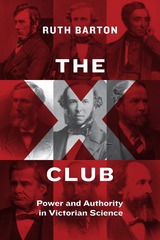
These six ambitious professionals and three wealthy amateurs—J. D. Hooker, T. H. Huxley, John Tyndall, John Lubbock, William Spottiswoode, Edward Frankland, George Busk, T. A. Hirst, and Herbert Spencer—wanted to guide the development of science and public opinion on issues where science impinged on daily life, religious belief, and politics. They formed a private dining club, which they named the X Club, to discuss and further their plans. As Ruth Barton shows, they had a clear objective: they wanted to promote “scientific habits of mind,” which they sought to do through lectures, journalism, and science education. They devoted enormous effort to the expansion of science education, with real, but mixed, success.
For twenty years, the X Club was the most powerful network in Victorian science—the men succeeded each other in the presidency of the Royal Society for a dozen years. Barton’s group biography traces the roots of their success and the lasting effects of their championing of science against those who attempted to limit or control it, along the way shedding light on the social organization of science, the interactions of science and the state, and the places of science and scientific men in elite culture in the Victorian era.

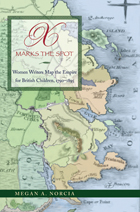
During the nineteenth century, geography primers shaped the worldviews of Britain’s ruling classes and laid the foundation for an increasingly globalized world. Written by middle-class women who mapped the world that they had neither funds nor freedom to traverse, the primers employed rhetorical tropes such as the Family of Man or discussions of food and customs in order to plot other cultures along an imperial hierarchy.
Cross-disciplinary in nature, X Marks the Spot is an analysis of previously unknown material that examines the interplay between gender, imperial duty, and pedagogy.
Megan A. Norcia offers an alternative map for traversing the landscape of nineteenth-century female history by reintroducing the primers into the dominant historical record. This is the first full-length study of the genre as a distinct tradition of writing produced on the fringes of professional geographic discourse before the high imperial period.
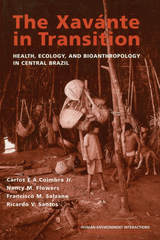
". . . an integrated and politically informed anthropology for the new millennium. They show how the local and the regional meet on the ground and under the skin."
--Alan H. Goodman, Professor of Biological Anthropology, Hampshire College
--Daniel Gross, Lead Anthropologist, The World Bank
--Laura R. Graham, Professor of Anthropology, University of Iowa


In The Expedition of Cyrus, the Western world's first eyewitness account of a military campaign, Xenophon told how, in 401 B.C., a band of unruly Greek mercenaries traveled east to fight for the Persian prince Cyrus the Younger in his attempt to wrest the throne of the mighty Persian empire from his brother.
With this first masterpiece of Western military history forming the backbone of his book, Robin Waterfield explores what remains unsaid and assumed in Xenophon's account—much about the gruesome nature of ancient battle and logistics, the lives of Greek and Persian soldiers, and questions of historical, political, and personal context, motivation, and conflicting agendas. The result is a rounded version of the story of Cyrus's ill-fated march and the Greeks' perilous retreat--a nuanced and dramatic perspective on a critical moment in history that may tell us as much about our present-day adventures in the Middle East, site of Cyrus's debacle and the last act of the Golden Age, as it does about the great powers of antiquity in a volatile period of transition.
Just as Xenophon brought the thrilling, appalling expedition to life, Waterfield evokes Xenophon himself as a man of his times—reflecting for all time invaluable truths about warfare, overweaning ambition, the pitfalls of power, and the march of history.
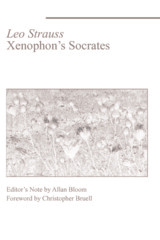
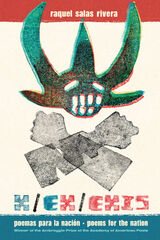
From teen dysphoria, to the incarceration of anticolonial activists Oscar López and Nina Droz Franco, to the entanglement of church and state, these poems acknowledge the violence of imposed binaries. For Salas Rivera, the x marks Puerto Rican transness in a world that seeks trans death, denial, and erasure. Instead of justifying his existence, he takes up the flag of illegibility and writes an apocalyptic book that screams into an uncertain future, armed with nothing to lose.
In today's post-disaster Puerto Rico and a world shaped by the recurring waves of an ecological apocalypse, Salas Rivera’s words feel visionary, mapping a decolonizing territory, a body, and identity of both soil and heart.
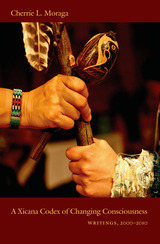
Thirty years after the publication of Anzaldúa and Moraga’s collection This Bridge Called My Back, a landmark of women-of-color feminism, Moraga’s literary and political praxis remains motivated by and intertwined with indigenous spirituality and her identity as Chicana lesbian. Yet aspects of her thinking have changed over time. A Xicana Codex of Changing Consciousness reveals key transformations in Moraga’s thought; the breadth, rigor, and philosophical depth of her work; her views on contemporary debates about citizenship, immigration, and gay marriage; and her deepening involvement in transnational feminist and indigenous activism. It is a major statement from one of our most important public intellectuals.
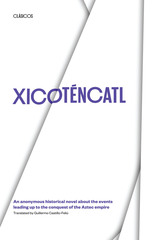
As Spain's New World colonies fought for their independence in the early nineteenth century, an anonymous author looked back on the earlier struggle of native Americans against the Spanish conquistadores and penned this novel, Xicoténcatl. Writing from a decidedly anti-Spanish perspective, the author describes the historical events that led to the march on Tenochtitlán and eventual conquest of the Aztec empire in 1519 by Hernán Cortés and his Indian allies, the Tlaxcalans.
Xicoténcatl stands out as a beautiful exposition of an idealized New World about to undergo the tremendous changes wrought by the Spanish Conquest. It was published in Philadelphia in 1826. In his introduction to this first English translation, Guillermo I. Castillo-Feliú discusses why the novel was published outside Latin America, its probable author, and his attitudes toward his Spanish and Indian characters, his debt to Spanish literature and culture, and the parallels that he draws between past and present struggles against Spanish domination in the Americas.
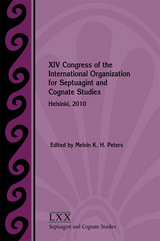


Beyond the range of optical perception--and of ordinary imaginings--a new and violent universe lay undetected until the advent of space exploration. Supernovae, black holes, quasars and pulsars--these were the secrets of the highenergy world revealed when, for the first time, astronomers attached their instruments to rockets and lofted them beyond the earth's x-ray-absorbing atmosphere.
The X-Ray Universe is the story of these explorations and the fantastic new science they brought into being. It is a first-hand account: Riccardo Giacconi is one of the principal pioneers of the field, and Wallace Tucker is a theorist who worked closely with him at many critical periods.
The book carries the reader from the early days of the Naval Research Laboratory through the era of V-2 rocketry, Sputnik, and the birth of NASA, to the launching of the Einstein X-Ray Observatory. But this is by no means just a history. Behind the suspenseful, sometimes humorous details of human personality grappling with high technology lies a sophisticated exposition of current cosmology and astrophysics, from the rise and fall of the steady-state theory to the search for the missing mass of the universe.


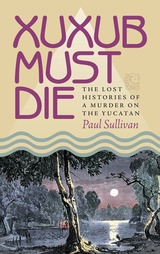
Today, foreigners travel to the Yucatan for ruins, temples, and pyramids, white sand beaches and clear blue water. One hundred years ago, they went for cheap labor, an abundance of land, and the opportunity to make a fortune exporting cattle, henequen fiber, sugarcane, or rum. Sometimes they found death.
In 1875 an American plantation manager named Robert Stephens and a number of his workers were murdered by a band of Maya rebels. To this day, no one knows why. Was it the result of feuding between aristocratic families for greater power and wealth? Was it the foreseeable consequence of years of oppression and abuse of Maya plantation workers? Was a rebel leader seeking money and fame—or perhaps retribution for the loss of the woman he loved?
For whites, the events that took place at Xuxub, Stephens’s plantation, are virtually unknown, even though they engendered a diplomatic and legal dispute that vexed Mexican-U.S. relations for over six decades. The construction of "official" histories allowed the very name of Xuxub to die, much as the plantation itself was subsumed by the jungle. For the Maya, however, what happened at Xuxub is more than a story they pass down through generations—it is a defining moment in how they see themselves.
Sullivan masterfully weaves the intricately tangled threads of this story into a fascinating account of human accomplishments and failings, in which good and evil are never quite what they seem at first, and truth proves to be elusive. Xuxub Must Die seeks not only to fathom a mystery, but also to explore the nature of guilt, blame, and understanding.
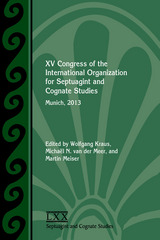
Essays from experts in the field of Septuagint studies
The study of Septuagint offers essential insights in ancient Judaism and its efforts to formulate Jewish identity within a non-Jewish surrounding culture. This book includes the papers given at the XV Congress of the International Organization for Septuagint and Cognate Studies (IOSCS), held in Munich, Germany, in 2013. The first part of this book deals with questions of textual criticism. The second part is dedicated to philology. The third part underlines the increasing importance of Torah in Jewish self-definition.
Features:
- Essays dealing with questions of textual criticism, mostly concerning the historical books and wisdom literature and ancient editions and translations
- Philological essays covering the historical background, studies on translation technique and lexical studies underline the necessity of both exploring general perspectives and working in detail
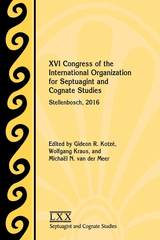
Essays from experts in the field of Septuagint studies
This latest volume from the International Organization for Septuagint and Cognate Studies (IOSCS) includes the papers given at the XVI Congress of the IOSCS, South Africa, in 2016. The articles contribute to the study of the Septuagint and cognate literature by identifying and discussing new topics and lines of inquiry and developing fresh insights and arguments in existing areas of research. Scholars and students interested in different methods of studying the Septuagint corpora, the theology and reception of these texts, as well as the works of Josephus will find in this collection critical information for future work in Septuagint studies.
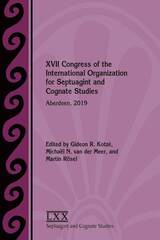
This volume from the International Organization for Septuagint and Cognate Studies (IOSCS) includes the papers given at the XVII Congress of the IOSCS, which was held in Aberdeen in 2019. Essays in the collection fall into five areas of focus: textual history, historical context, syntax and semantics, exegesis and theology, and commentary. Scholars examine a range of Old Testament and New Testament texts. Contributors include Kenneth Atkinson, Bryan Beeckman, Elena Belenkaja, Beatrice Bonanno, Eberhard Bons, Cameron Boyd-Taylor, Ryan Comins, S. Peter Cowe, Claude Cox, Dries De Crom, Paul L. Danove, Crispin Fletcher-Louis, Frank Feder, W. Edward Glenny, Roger Good, Robert J. V. Hiebert, Gideon R. Kotzé, Robert Kugler, Nathan LaMontagne, Giulia Leonardi, Ekaterina Matusova, Jean Maurais, Michaël N. van der Meer, Martin Meiser, Douglas C. Mohrmann, Daniel Olariou, Vladimir Olivero, Luke Neubert, Daniel Prokop, Alison Salvesen, Daniela Scialabba, Leonardo Pessoa da Silva Pinto, Martin Tscheu, and Jelle Verburg.
READERS
Browse our collection.
PUBLISHERS
See BiblioVault's publisher services.
STUDENT SERVICES
Files for college accessibility offices.
UChicago Accessibility Resources
home | accessibility | search | about | contact us
BiblioVault ® 2001 - 2024
The University of Chicago Press









